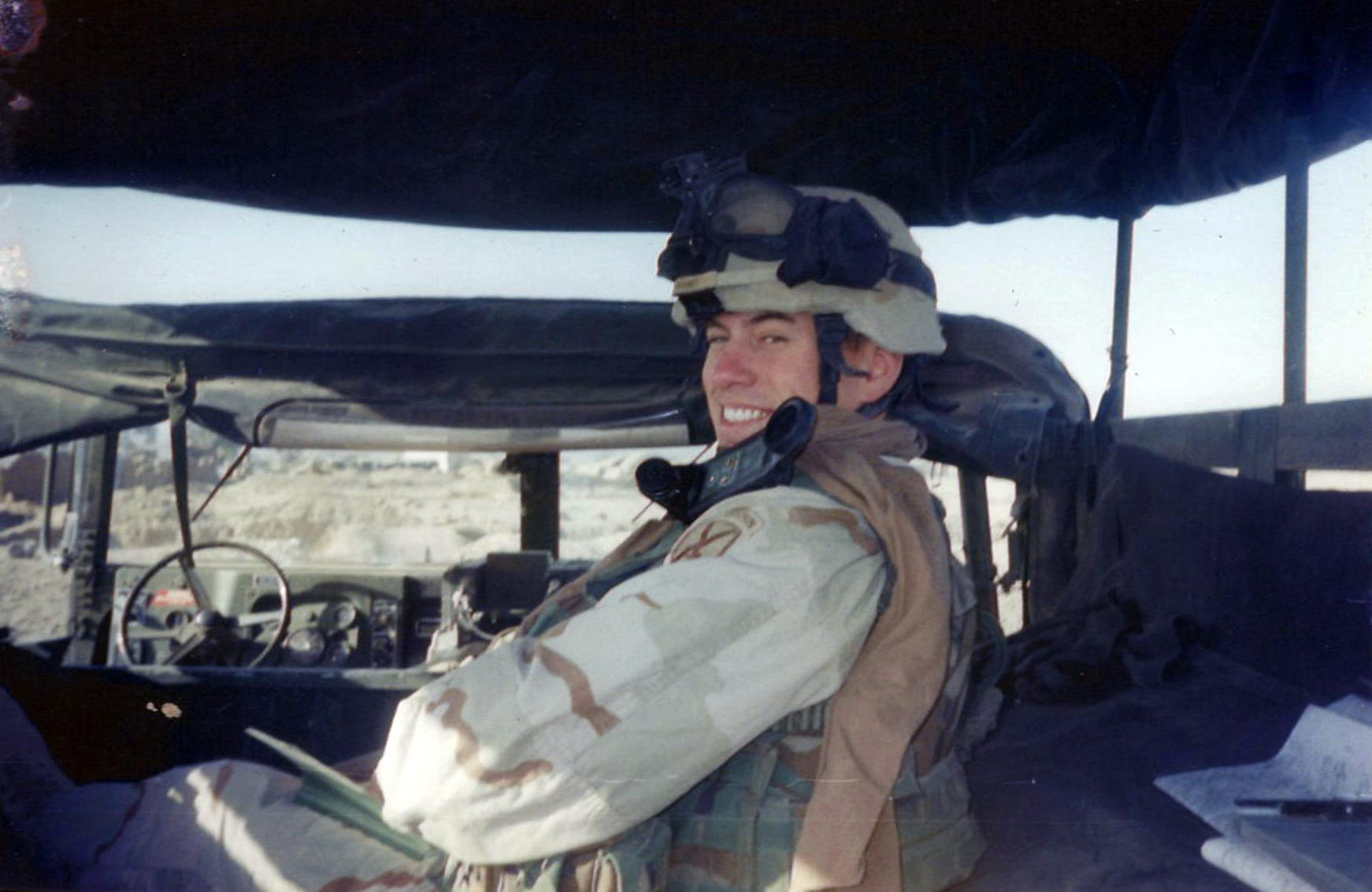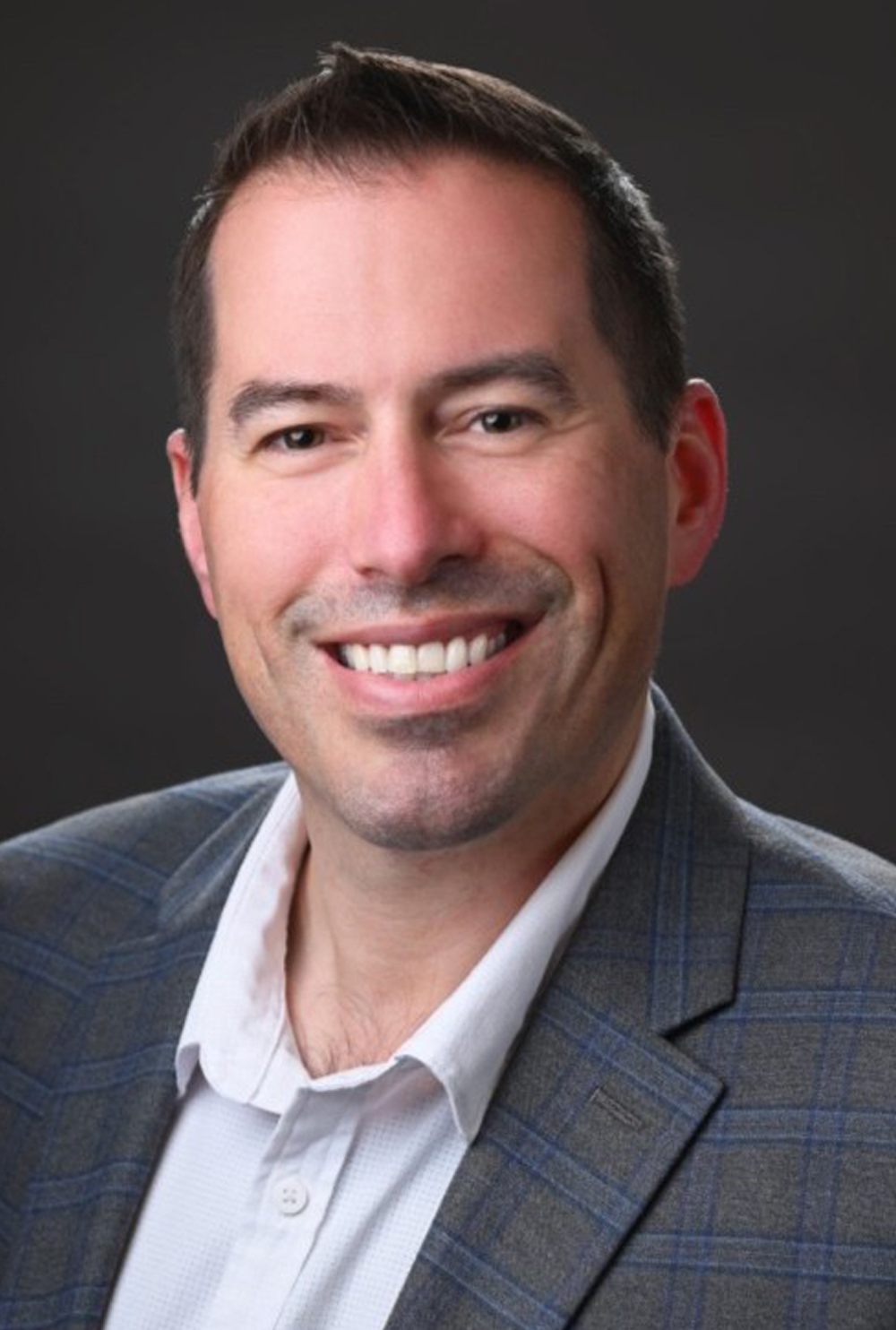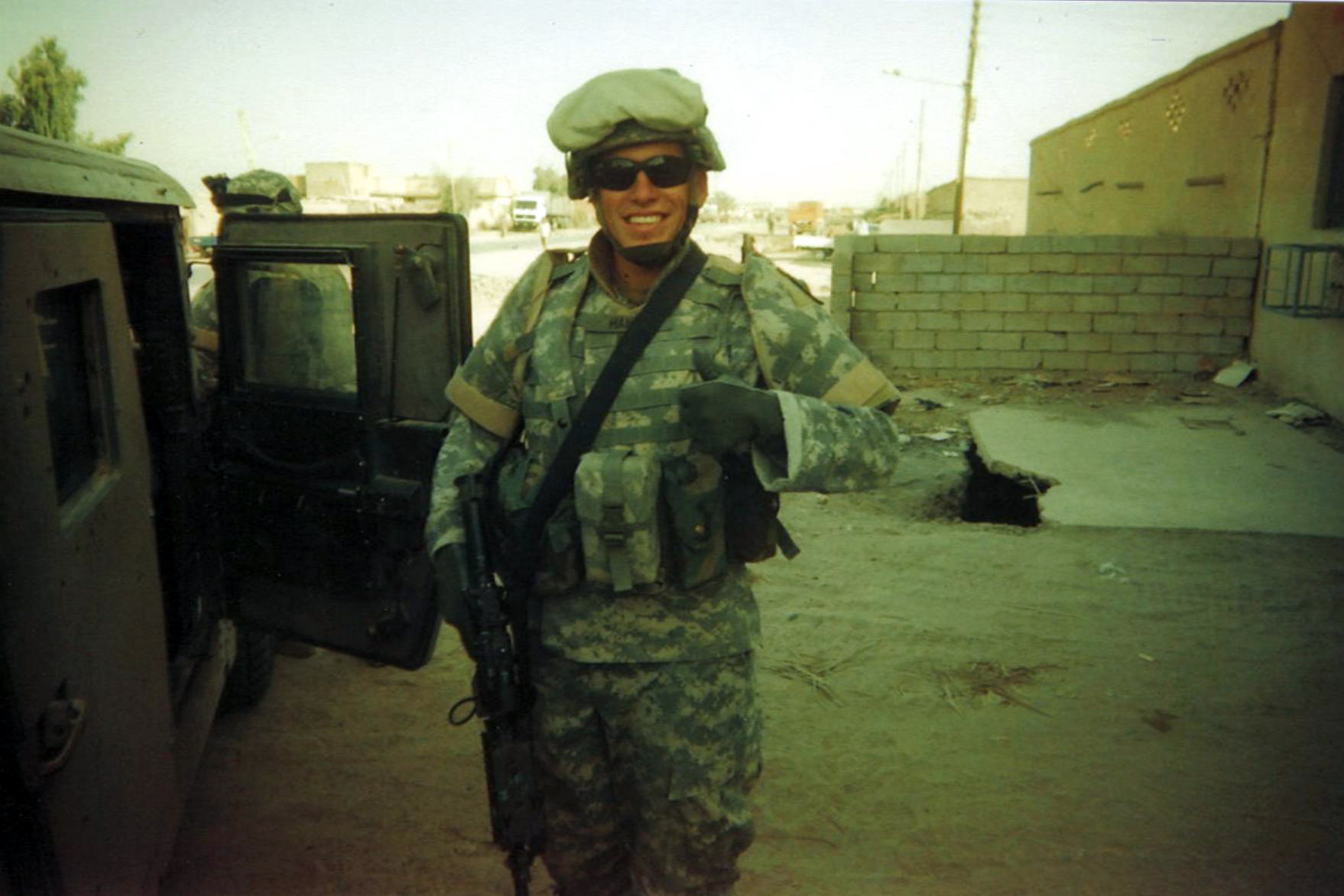
The Department of History at Texas A&M University offers classes that cover a wide array of human history and practical applications thereof, ranging from expansive World History and Western Civilization surveys to the specific Digital Humanities Theory and Practice course. Each one gives students new sources of knowledge and perspectives upon which to build their practice of being historians who live up to the department’s renowned reputation.
To help ensure that continuity, all history majors must complete a required class to graduate titled HIST 481: Seminar in History. While the subject matter varies based on the specific section, the course requires students to produce an original research paper based on an analysis of primary and secondary sources. Dr. Jonathan Brunstedt, a member of the Texas A&M History faculty since 2019, has taught HIST 481 with the focus of “the remembrance of war” and with David Haney '23 among his enrolled students.
Haney is a combat veteran of the U.S. Army who was assigned to the 2nd Battalion, 22nd Infantry Regiment of the 10th Mountain Division. During his seven-year military career, he achieved the rank of sergeant and was deployed to Bosnia, Afghanistan and Iraq. He graduated in fall 2023 with his bachelor's degree in history and is currently an academic advisor with the School of Public Health. In Brunstedt’s course, Haney developed a research paper with a special focus: his involvement in the same operation as Pat Tillman wherein the fatal gunfight occurred nearby.

“My journey to Texas A&M was long, arduous and in no way a straight path,” Haney said. “Having Dr. Brunstedt's class be the culmination of my time at Texas A&M almost seemed like destiny. The concepts I learned in Dr. Brunstedt's class, the research I did on those concepts and the research I did for my final paper also forced me to reflect on my own military experience and the effects it had on how I engaged with society as a whole.”
For his research paper, Haney honed in on the concept of agencies of articulation, defined by cultural historian T.G. Ashplant as "those institutions through which social actors seek to promote and secure recognition for their war memories.” This framing allowed him to challenge his perceptions of how military-friendly and military-focused organizations garner influence and momentum.
“Though I did not ‘forsake’ my respect and appreciation for such organizations, I entertained a more critical view of the processes and narratives that are used to build and reinforce certain group identities, which then can be used to push agendas, create heroes and establish memorials,” Haney said. “In the context of my paper, I focused on how different agencies used the ‘hero-ness’ of Pat Tillman to create a hero myth about him which was used by different agencies to shape group identities and articulate certain narratives.”
In his paper, Haney also analyzed Tillman and the Pat Tillman Foundation. Tillman was a U.S. Army Ranger who enlisted in the aftermath of the September 11 attacks, leaving his career as a professional National Football League player for the Arizona Cardinals. On deployment in Afghanistan during Operation Enduring Freedom, Tillman was reported to have been killed by enemy combatants on April 22, 2004. However, an investigation revealed that Tillman had been killed by friendly fire after being mistakenly seen as an enemy combatant. Controversy surrounded the Army leadership’s knowledge of the true cause of Tillman’s death days after the incident, juxtaposed with the alternate narrative circulating to the media and his family.
“It should be noted that I was not in the same unit as Pat Tillman, nor was I involved in the specific mission that he and his team were involved in,” Haney clarified. “The unit I was in was playing a supportive role during the incident, though we did hear the gunfight from a distance, not knowing what had happened.”

Haney drew from military investigative reports about Tillman's death and government memorandums as well as speeches and comments from senators, House representatives and President George W. Bush. He also used interviews with Tillman’s mother Mary Tillman, media reports on his death, journal articles from authors who were skeptical of the US government's narrative of Pat Tillman and discourse analysis focused on the Pat Tillman Foundation website. This dive into memory and records allowed for Haney to come to an important conclusion.
“I personally believe that having a critical view is equally as important as it is delicate,” Haney said. “In my personal experience, being able to maintain a critical perspective, without becoming disillusioned with my military past or the US government, has allowed me to hold onto my individual identity while I explore the dynamics of other individuals and other agencies. This research also came from a culmination of the harsh realities and self-reflections of a person who had experienced and participated in war. It came from being willing to explore critical views of things that I held, and still do hold, in high regard."
Brunstedt’s course examines how societies have “remembered” war, such as through monuments, public holidays, commemorative rituals, reenactments and popular culture. Specifically, students in the class focus on the “formation and contestation of historical memory in a variety of contexts and explore how collective memories of past wars have been essential in shaping and sustaining notions of group identity.” For Brunstedt, teaching students like Haney to pull from personal experience is “essential” to historical research.
“Among other things, drawing from personal experience helps foreground the human element in history — understanding that real people with emotions, dreams and fears were involved,” Brunstedt said. “Treating history as purely an abstraction has real problems, especially when uncovering the darker aspects of our shared past. It is, after all, only by recognizing the constructed and always-contested nature of the cultural narratives that shape our lives that societies can properly reckon with the past — the good as well as the bad.”
The concepts I learned in Dr. Brunstedt's class, the research I did on those concepts and the research I did for my final paper also forced me to reflect on my own military experience and the effects it had on how I engaged with society as a whole.

